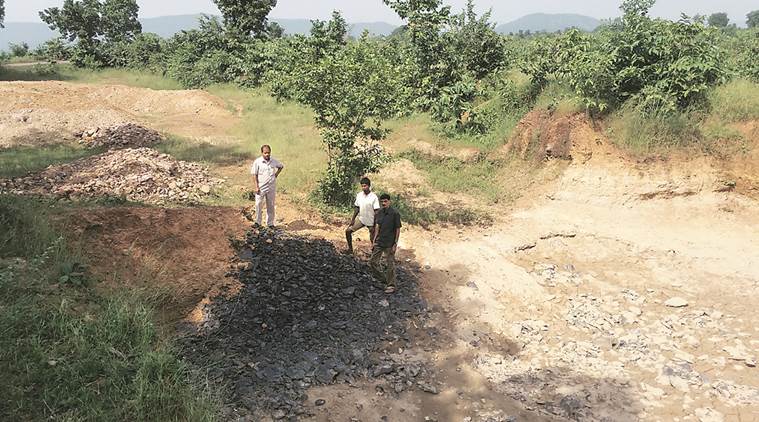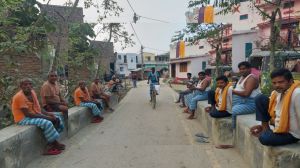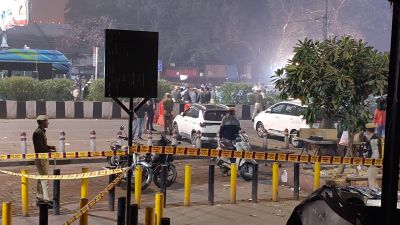Stay updated with the latest - Click here to follow us on Instagram
With own firm, ‘coal satyagraha’, village resists acquisition
The idea behind the firm was simple, says Harihar Patel, one of the founders. If their farmland was rich in coal, and if they had to give it up for vikaas, they would mine it themselves.
 Villagers want to mine their own coal in Gare. Source: Dipankar Ghose
Villagers want to mine their own coal in Gare. Source: Dipankar Ghose
Every minute, a truck, mostly laden with coal, rattles past Gare village in Raigarh. In the heart of Chhattisgarh’s coal district, the residents of this predominantly Adivasi village are now used to the grime everywhere — on their homes, trees, bodies. Yet, not one truck actually stops in Gare. And if the villagers have their way, if one ever does, it will be one of their own.
In 2012, after fighting off several attempts to acquire their land, Gare villages registered their own firm, ‘Gare Tapupkram Producers Company’. By now, more than 500 farmers from 12 villages have pledged around 700 acres to the firm, with 55 villages across Raigarh also showing interest.
Watch what else is making news
The idea behind the firm was simple, says Harihar Patel, one of the founders. If their farmland was rich in coal, and if they had to give it up for vikaas, they would mine it themselves. “We are willing to pay the government even five times the royalty private companies pay. It is our land, we should get the benefits of any produce from it.”
Gare Tapupkram Producers Company now has an office, and its accounts are audited by a chartered accountant. Says Sukhdev Ram Rathia, an Adivasi with four acres pledged to the firm, “We still farm on our land. But why should someone take our land away and reap the benefits? We will take care of the land and the earth better because it is ours. And we will help the government if they want coal mining.”
Apart from setting up own firm, villagers have also been holding a “coal satyagraha” on October 2 every year. “Earlier, we would break the coal law, in a small way. We would dig up a little coal from the earth, and ask the administration to accept it. In 2015, this became larger, with villagers deciding to extract a little coal everyday to make their point. On the last Sunday of every month, we have a meeting and decide the future course of action. If the government truly believes in Make In India, then this is it,” Patel says.
A district official, who did not want to be named, said they were treading with care. “We are looking at their proposal, but running a coal mine is not as simple as they think. However, we have to look at any such company, which seems to have the backing of villagers, carefully, as these issues can become law and order ones,” he said.
One of the earliest protests against land acquisition in this region was in January 2008, at a public hearing held over a Jindal Steel and Power proposal to acquire 1,200 acres in Gare and five nearby villages. Villages argued that no norms for calling such a meeting had been followed. The lathicharge that followed left many injured.
Rajesh Tripathi, an activist, said the villagers initially filed an appeal with the Bilaspur High Court. This was then transferred to the NGT when it came into being, and eventually the public hearing was cancelled.
A similar public hearing in 2013 for land in the same Gare Pelma 4/6 coal block had to be cancelled too following protests.
The agitation catapulted Gare to the heart of protests against land acquisition across Raigarh. Says Patel, “Anywhere one looked, land rich in coal was getting acquired for prices as low as Rs 10,000 an acre, and the villagers were powerless. Even if that has improved recently, any villager here whose land is acquired doesn’t get anything close to the market value.”







